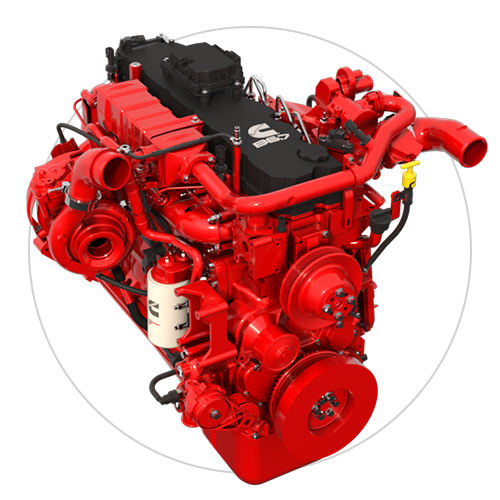Engines for Africa Available Now! Check Out Our Relied On Automobile Components Store
The Influence of Cutting-edge Engine Technologies on Energy Effectiveness and Environmental Sustainability
In the world of transportation and industrial machinery, the continual mission for improved energy efficiency and reduced environmental impact has led to substantial improvements in engine technologies. From the steady change towards hybrid and electric systems to the combination of turbocharging for enhanced efficiency, the landscape of engines is evolving rapidly.
Evolution of Engine Technologies
The progression of engine technologies over the decades has been noted by constant innovation and improvement in pursuit of improved performance and efficiency. From the very early days of interior burning engines to the sophisticated crossbreed and electrical powertrains of today, the development of engine technologies has been driven by a relentless pursuit for boosted fuel efficiency and reduced exhausts.
One significant landmark in this advancement was the advancement of turbocharging and straight shot systems, which dramatically improved engine power result while enhancing gas performance. These innovations permitted smaller, much more light-weight engines that could provide the efficiency of larger ones without jeopardizing on performance.
Additionally, innovations in materials scientific research have actually resulted in the prevalent adoption of lightweight materials such as light weight aluminum and carbon fiber in engine construction. This has not just decreased total lorry weight yet has actually also boosted engine performance by decreasing energy losses associated with inertia and friction.
Advantages of Electric and Crossbreed Solutions
With the expanding focus on sustainability and energy effectiveness, what benefits do electric and hybrid systems offer in the world of engine technologies? Additionally, electrical and hybrid systems are extra energy-efficient, converting a greater percentage of stored power right into propulsion compared to conventional engines. Crossbreed systems incorporate the advantages of electric propulsion with the versatility of a burning engine, giving extended driving arrays and decreasing array stress and anxiety for consumers transitioning to electrical vehicles.
Turbocharging for Improved Efficiency
Ingenious engine innovations like electric and hybrid systems have actually led the way for innovations in vehicle effectiveness, with turbocharging emerging as a crucial strategy for enhancing general performance and sustainability. Turbocharging jobs by utilizing a wind turbine to compel even more air right into the combustion chamber, permitting better gas burning and raised power result without a substantial increase in engine dimension. This procedure, referred to as forced induction, makes it possible for smaller sized, extra fuel-efficient engines to produce power levels comparable to larger ones. By making best use of the efficiency of the combustion process, turbocharged engines can achieve enhanced gas economic climate and reduced exhausts, contributing to environmental sustainability. Furthermore, turbocharging improves engine responsiveness, supplying vehicle drivers with a much more dynamic driving experience. The extensive adoption of turbocharged engines in both gasoline and diesel vehicles shows their performance in stabilizing performance, effectiveness, and environmental influence. As auto suppliers proceed to refine turbocharging technology, its role in promoting energy efficiency and sustainability in the transportation field is expected to expand even more.
Using Alternate Gas
Harnessing alternate gas presents an encouraging avenue for minimizing carbon emissions and expanding the energy resources made use of in transportation. As the globe aims to combat environment modification and reduce dependency on fossil gas, alternative gas have acquired significant attention for their possible ecological and financial advantages.
Biofuels, such as ethanol and biodiesel, are stemmed from renewable sources like corn, sugarcane, and algae, offering a cleaner burning option to conventional gasoline and diesel. These fuels can be combined with existing petroleum fuels or used in committed engines, giving a pathway to lower greenhouse gas discharges and enhance air top quality.
Furthermore, hydrogen gas cells have become a promising modern technology for zero-emission transportation. engines for africa. By transforming hydrogen gas into electricity to power electric motors, fuel cell cars generate only water vapor as a result, eliminating hazardous tailpipe exhausts totally
In addition to reducing carbon exhausts, different fuels can also enhance power security by expanding the fuel mix and decreasing reliance on imported oil. Welcoming alternate fuels in transportation is an important action in the direction of accomplishing a more lasting and ecologically friendly future.

Environmental Advantages and Future Potential customers
Different fuels, such as biofuels, hydrogen, and power, offer substantial ecological advantages compared to conventional fossil fuels. Furthermore, different gas can help diversify energy sources, improving energy safety and lowering dependence on click site limited sources.
Innovations in modern technology proceed to boost the effectiveness and affordability of alternative gas cars, making them more obtainable to customers. By embracing alternate fuels and cutting-edge innovations, the path in the direction of a much more sustainable future comes to be progressively achievable.

Final Thought
In conclusion, ingenious engine technologies have actually played an essential check this duty in improving power efficiency and advertising ecological sustainability. engines for africa. The development of engine modern technologies, adoption of electrical and hybrid systems, application of turbocharging, and expedition of different fuels have all added to decreasing emissions and raising performance. The ecological benefits of these improvements are clear, and there is wonderful prospective for more development in the future. Engine innovations remain to be a crucial location of focus for accomplishing a more sustainable future.
In the world of transport and commercial equipment, the continuous pursuit for enhanced energy effectiveness and reduced ecological influence has led to significant innovations in engine innovations. Turbocharging jobs by using a turbine to require more air right into the combustion chamber, allowing for better gas combustion and raised power output without a significant increase in engine dimension. By making best use of the great site effectiveness of the burning process, turbocharged engines can accomplish better gas economy and minimized exhausts, adding to ecological sustainability. Different gas, such as biofuels, hydrogen, and electrical energy, offer significant environmental benefits compared to typical fossil gas. The advancement of engine technologies, adoption of hybrid and electric systems, utilization of turbocharging, and exploration of different fuels have all contributed to minimizing exhausts and raising performance.